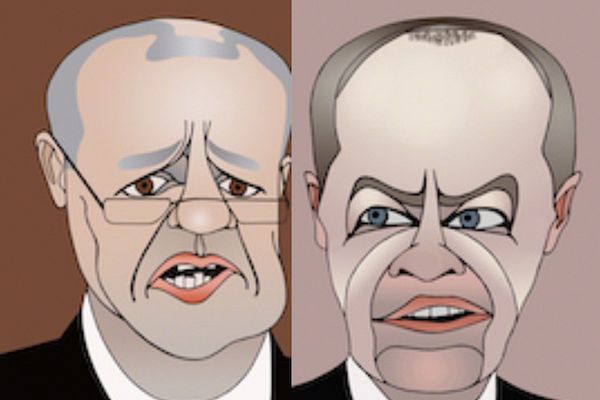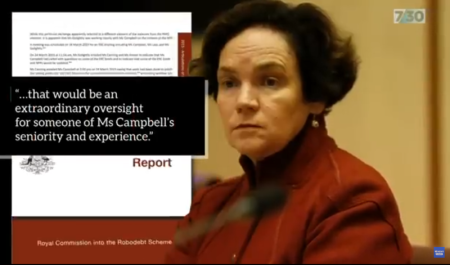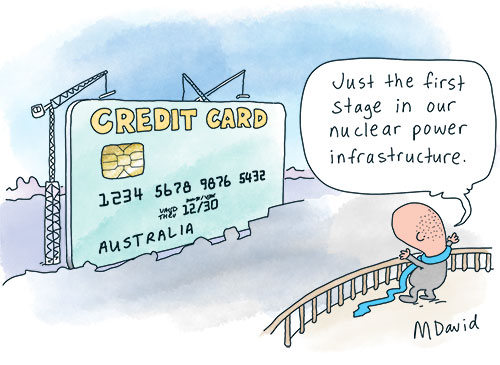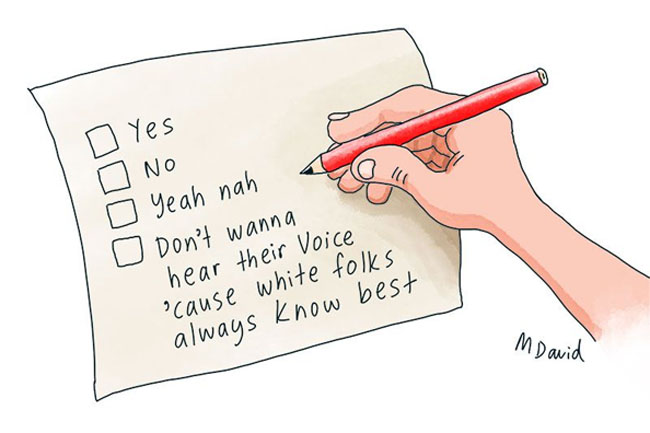Prime Minister Scott Morrison may be on track to lead the conservatives to an honourable defeat.
How else to describe the performance of a man who for the last month or so has had no team to lead and no policies to espouse? Yet, he has got up every morning and thrown himself into the fray, in good humour nearly all the time, all sorts of facts and statistics at his fingertips. As the election has gone on, I have become more convinced that Morrison is not the evil bigot I thought he was five years ago.
Morrison is genuine and genuinely ordinary but has the capacity to keep on going, a spring in his step. He has single-handedly turned certain defeat into a contest.
I reckon there are three main types of people who vote conservative. Firstly, there are those who are deluded equating any challenge to the status quo with Armageddon. Secondly, there are the short-sightedly selfish, the well-off who only think of what is in their own personal bank account and bugger everyone and anything else. And finally, there are people like Morrison, who genuinely believe that politics is about choosing the lesser of two evils and that the invisible hand of the market, all things considered, is preferable to the heavy hand of government. Or some version of this dichotomy.
Crassly oversimplified this choice may sound but it can claim an authoritative source in the work of the Marxist historian Erik Hobsbawm. In Hobsbawm's account of the “dual revolution”, the French Revolution ushered in the modernity of the political state as the prime mover and the industrial revolution ushered in the endless attempts of capitalism to either evade the state or harness it for the purposes of its own autonomy.
Before I am condemned for conceding that there is a plausible reason to vote conservative without being either stupid or selfish, it is important to consider one salient fact. Labor will only win this election if it manages to persuade tens of thousands of people who voted for the Coalition last time to make an active decision to change their vote. It does not help to treat these people as either stupid or selfish.
I think a good case could be made that this is the trap Turnbull fell into at the last election. In his insouciant arrogance, he simply couldn’t comprehend that many people would be stupid enough or unselfish enough to change their vote, and not vote for him after voting for Abbott in 2013.
Morrison is not Turnbull and does not alienate voters by patronising them.
However, describing Morrison as decent and committed is not the same as saying he is a deep thinker full of interesting ideas. As Deputy Opposition Leader Tanya Plibersek pointed out at the Labor launch, it is amazing that such a motor mouth can utter so many words, yet have so little to say.
This is one of the reasons why I disagree with the assessment that this is one of the most boring elections ever. If the focus is on personal drama, then perhaps it is. But on the other hand, in my opinion, this is the most progressive platform put up by Labor since Whitlam in 1972.
Opposition Leader Bill Shorten and Shadow Treasurer Chris Bowen are not just tinkering around the edges. They are going to take away billions from some voters and use this money to pay for what they want to implement on behalf of many others. And Labor’s approach to climate change is pretty clear too — whatever it takes. They have also been absolutely explicit about this, not trying to smooth over the rough edges, or pretend they are a “kinder, gentler” version of the alternative.
Morrison is protected by this fact. He doesn’t need ideas, just the ability to attack Labor for its bold plans. Which he does relentlessly and fairly well.
Of course, last week the election took a personal turn that was as bizarre as it was deplorable. Whether or not Shorten’s reaction to the attack on him and his mother in the Murdoch gutter press plays a key role in making him more electable is a moot point a week before the election. But if it does and Shorten wins, then the Murdoch mob will have scored one of the greatest own goals in their sordid history. This one bit of over-reach has demonstrated to millions of people that News Corp coverage of Shorten and the Labor Party, day in and day out, is grossly unfair.
It is time that the Murdoch monopoly in Australian media – particularly in single newspaper cities – is broken up. And the fools at the Daily Telegraph have given this idea a boost that many of us could only dream of.
A further thought on Murdoch. As the New York Times pointed out, Rupert’s influence is declining as Lachlan’s is increasing. Perhaps what went wrong at News Corp this week is yet another sign that Lachlan is not in his father’s class when it comes to clever bastardry. Bastardry, yes. But not as clever. It wouldn’t be the first business that Lachlan has been involved in that didn’t turn out too well for him. (OneTel, anyone?) If this sloppiness is what Lachlan is bringing to the table, let there be more of it, I say.
The New York Times piece also concluded that Lachlan Murdoch is far more conservative than his father. Whereas Rupert is reported as fairly equivocal about far-right politics, including Trump, this son is a true believer. Lachlan, the article suggests, actually believes the editorial world view spewed forth nightly on Fox News and Sky After Dark, and daily in News Corp newspapers. Clearly, the time has come to stop bothering about Rupert. Lachlan is now the one to merit constant attention and scrutiny.
Michael Galvin is an adjunct fellow at Victoria University and a former media and communications academic at the University of South Australia.
 This work is licensed under a Creative Commons Attribution-NonCommercial-NoDerivs 3.0 Australia License
This work is licensed under a Creative Commons Attribution-NonCommercial-NoDerivs 3.0 Australia License
Support independent journalism Subscribe to IA.












